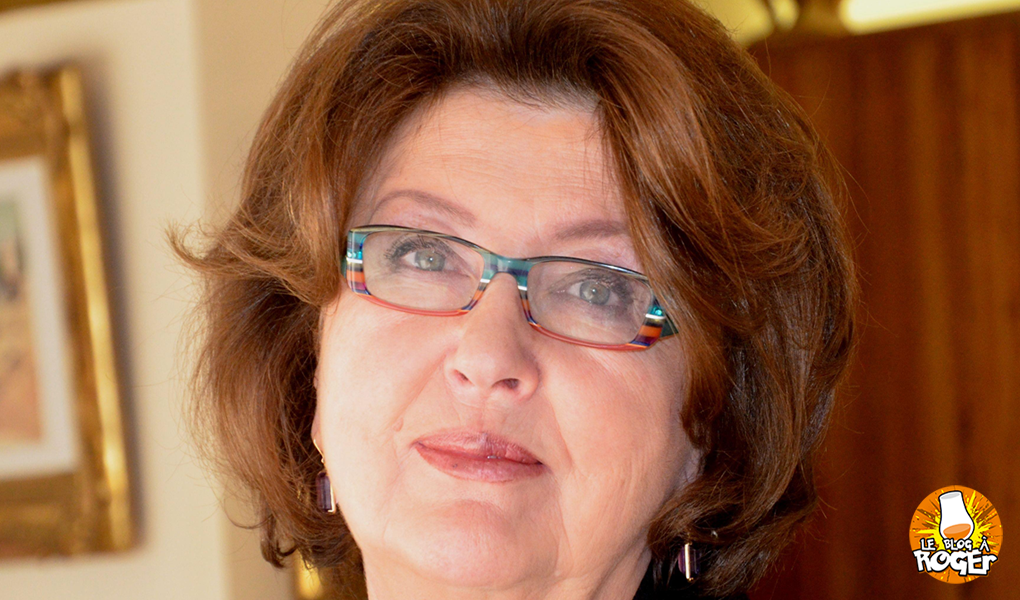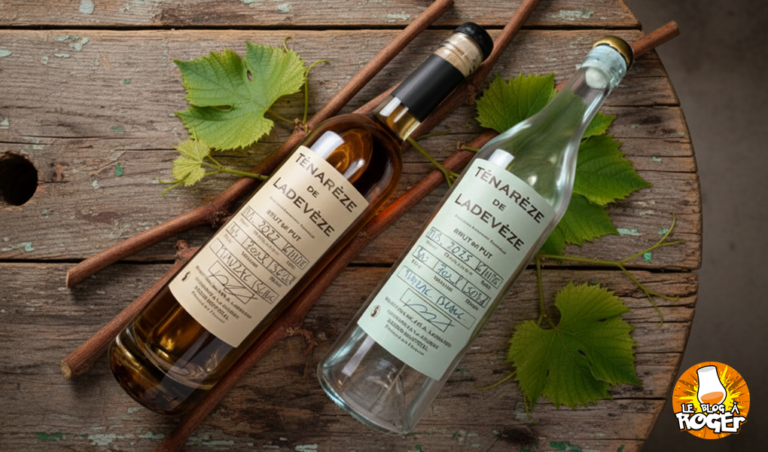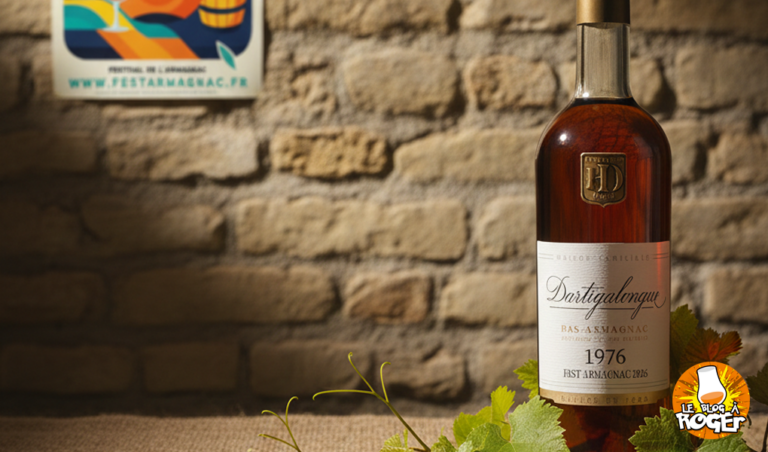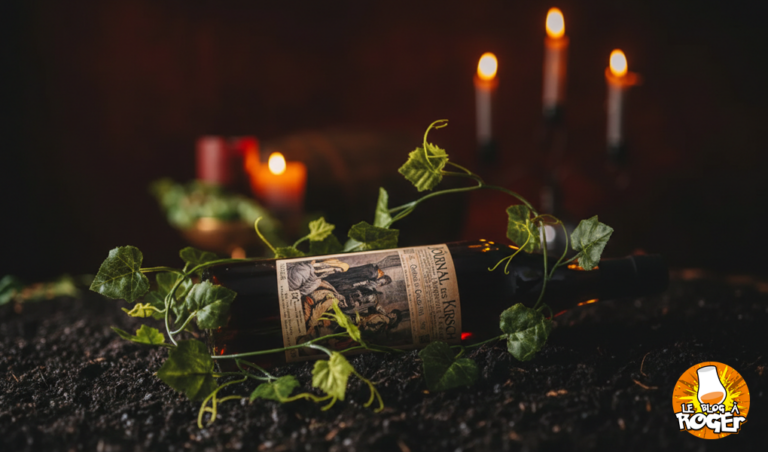After my discussion with Maryse Samaroli, I offer you an interview with another very great lady in the world of spirits, and more particularly the French agricultural rum medium, Chantal Comte.
Chantal Comte is indeed the first to have, from the early 1980s, selected and bottled rums from the French West Indies directly from the source. Most often in high degrees and of course without any additions.
Since then, each selection has been praised by critics as being very successful and these bottlings are particularly popular with collectors and lovers of good things.
I therefore suggest that you share with you the discussion I had with this great lady …
Can you introduce yourself ? You weren’t only active in rum, I even think it wasn’t your main activity in fact?
Indeed, I have been a winemaker in the Rhones valley for 35 years, and I am still the owner of the vineyard but nevertheless I have not been in it for 5 years.
I worked on the creation of the AOC costières-de-Nîmes in order to restore its reputation to the wines of this region.
It was 15 hour work a day, but there was a point when we and my husband decided to stop.
The wine was a great experience, but in addition to this activity, I also took care of the rum. Just that it was taking me 10% of my time when now it is only that.
How did you get this interest, this passion and how did the possibility of bottling so much come about?
I quickly became passionate about rum, since my father had car dealerships in the Antilles, and therefore I had access to it « easily ».
This product is so rich in history, the history of France in America, filibusters, exports, having replaced armagnac and cognac during the war … So rum has a very important history.
It fascinated me and I thought, with great naivety, that with wine, one and the other would benefit from the notoriety of the other … But in fact, not at all.
These are two parallel worlds that never meet. I had customers who never knew rum and vice versa, others who were not interested in wine. There was a kind of seal between the two products.
And so, over the course of our meetings on site, I discovered that a rum tasting was as fantastic and complex as wine. And suddenly I got passionate about going to taste in Martinique … They were friends, we all knew them in the end.
Andrée Depaz, who was a great farmer, a pioneer in respecting the environment, was a very important man for me, he taught me everything with Paul Hayot who was his friend and director.
Both of them explained me what rum is … it’s like you start in wine with the president of Petrus in fact.
And then one day, in 1983, I invented a profession … Selecting rums from producers and bottling them for my account.
In those years, it was the total crisis in the world of rum, it sold almost nothing. Even there, when you went to someone’s house, you were not offered rum. They were not proud, they did not trust their products. We offered you whisky, port etc … and it struck me a lot!
When I went there, I said to them: « But you make rum, let me taste your products ! »
I advocated as much for rum as it did for my wines and I think I did a lot to get things done there. Even if I paid to learn because for 20 years I have sold almost nothing. I bought but it didn’t really sell.
Over time, my first bottlings were successful and even became cult objects with collectors and other spirits lovers.
I stubbornly opposed everyone’s advice … I would have liked to buy all of Martinique in fact, but hey, we don’t do what we want.
Everywhere I went, I was told that we didn’t buy drinks for dockers, as an Englishman once told me. But by dint of being an ambassador for rum around the world it started, although for a long time I preached in the desert!
At the beginning, my first bottlings I made for André Depaz who sold almost nothing. He really suffered, the distillery lacked investments etc … I went to those whose products I really liked.
I invented this profession because it existed in whiskey but not in rum. I was inspired by the « blender and bottler » in Scotland to do the same but in Martinique at first.
Especially since you quickly decided to bottle cask strenght, which was not done too much at the time
Indeed, I was the first to make cask strenght rums, but beware, we only do it when there is a reason … they are not all ready to be bottled in this way, everything is not not worthy of being offered in cask strenght.
It is a question of balance, of complexity … Besides, now we see cask strenght where it should not be!
It goes through an education of taste, when I present a cask strenght, I explain that it is not drunk … we take a drop and we wait for the saliva to reduce the product and there we have all the complexity without alcohol burns.
What would be your bottling that you take the most pride in?
The first rums from Depaz, when it was still his property, it leaves an extraordinary memory of tasting.
It’s like the wines of Henri Jayer, I was lucky to have his trust and to have the right to buy his bottles when I was only in the wine world for 3 years. Now that time is over.
I was lucky to have the greatest masters …
But in all that I have chosen, I have always been a rare requirement and I continue like this. That is to say that I did not need to bottle rums, my job was to be a winegrower.
So if I didn’t sell, it didn’t matter in the end. I didn’t base my life on it.
Exactly, and this is where we can see the difference between a person who has to select, even if he does not find anything fantastic, and you who had plenty of time to search.
Claerly, and it can last for years …. there it’s been 3 years that I have not found anything and if I don’t find, it doesn’t matter.
But it is getting harder and harder, firstly because the prices have risen sharply, and at the same time the rumers tell themselves that what I did, why not them?
I am fortunate to have a nose and a palate that works rather well, so I can not admit to having something average …. or just good.
I don’t want to go to great lengths for something that will be « just » good. I need excellence.
Do you have an habitation you haven’t worked with that would interest you? I’m thinking of Longueteau, Bally or Neisson for example …
So you know, there are some like Neisson who really don’t need me either.
At the beginning I really did it out of friendship for André Depaz who was desperate with big stocks that he didn’t sell. Everyone at the time suffered from that, making rum is a huge investment, it’s very hard in the middle.
In fact, it is above all a question of feeling, for example with Daniel Baudin who was crowned best cellar master in the world, I had fascinating tastings and this led to very beautiful vintages.
It’s, selfishly, what I love about my job.
Besides, to come back to these La Mauny selected with Daniel, how is it going?
Daniel is very respectful of everyone’s choice, simply in the assembly that I make, it is my taste and he respects it.
It turns out that it has been to the taste of many people, but I do not do this for commercial purposes. I’m not trying to please, it’s really the last of my worries.
These selections are an adventure that you have to know how to endure, we are still talking about 48 to 50 barrels of rums to taste on a morning to validate the blend. Of these, I kept 16 for the 2001 for example.
I drink very very little, each drop must be tasted like a treasure. A drop is enough for me to have all the information I need. I am thus able to go to the end with the same sensations since my palate is not damaged by too violent tastings.
The 2001 and 2006 are really beautiful and really, the big bottles should not be shared with anyone. You have to do it with people who will be able to appreciate them at their true value.
You have to fight for quality. A Japanese author said that one should keep in his house only that which gives pleasure … If you apply it, many things leave!
It’s the same in spirits, you should only drink what is excellent.
You have had the chance to offer pre-AOC and post-AOC rums, what do you think this appellation brings to the world of French spirits?
I worked for a long time so that we stop with these black, syrupy rums filled with chicory, caramel or others …
I was the one who said to Jean Pierre Bourdillon, who was president of the coderum, that rum should have an AOC. If you want to defend rum, you had to start there first.
I am respectful of the rule, and the AOC is a chance that we have because quite a few others really do anything.
The AOC is a safeguard, a guarantee of a quality product. It’s essential.
It is a product that I defended, that I put forward and that I tried to put in fashion … I am aware of it as I age.
It’s not pretentious on my part to say it, it’s just the reality.
You have « only » bottlings from the French Antilles, have you ever been tempted to try your hand at rums of English traditions?
The problem with rum is that a lot of different things are actually called rum. Cachaça for example is a rum, but it is not at all the same product!
I did not find myself in these rums whose processes were actually different. The same name is given to industrial rum from molasses and agricultural rum. There should be two names in fact, it’s not the same thing at all.
But no, I have never been interested in English rums because once again, I focused on what I wanted to defend … So rum, AOC and above all and above all, quality.
Clearly, the biggest rums are rhums agricoles.
Once again, I remain faithful to the rums of Martinique even if I tasted excellent things in Guadeloupe and of course in Marie Galante.
As a woman, you are one of the only ones with Maryse Samaroli to select and bottle, do you think it plays in this rather masculine world?
It’s a great question, because I’ve already checked it in wine.
I had a cellar, and I saw couples arriving to visit it. Only the men got out while the women stayed in the car … I told myself that it was not possible and I arranged my cellar to make it interesting in the eyes of women too.
When women were there, they listened to what was going on during the tastings.
Women are more capable of detecting things because at the time it was they who cooked, it was they who raised the children, it was they who felt whether the child was sick or not, etc. .. Women have a more « wild » or « animal » side since they give birth to children, they have learned to use their noses more than men.
The nose is now a taboo sense in our society. You can tell someone everything, but never that he smells bad, for example.
I gave lessons to primary school children to teach them to recognize aromas, I had to stop because some parents had objected to this because they found that I was promoting alcohol.
Of course that was not the case, I made them recognize coca cola blindly and they found me a lot of distinct aromas.
Some were really gifted tasting and it’s a shame … in childhood, we can from time to time trash natural gifts because we stifle them.
What is your view on the world of rum today? How do you see the evolution of this spirit and what does it inspire you?
I find that there are more and more people who want to learn … young people are also very interested.
They try to understand and learn and many contact me to say that they love my products. As I sometimes say to my husband, I am the idol of young people 🙂
They arrive with a new and open mindset, it’s really nice.
Otherwise, you have to keep passionate people like Daniel Baudin and not want to take out new things in order to get new things out … If I could, I would always have Depaz 1975 personally, it was so good.
In our time you have to come out with ever more innovative products, but it’s just marketing … for true quality there is no need to be innovative.
I’ll tell you something, innovation often replaces real talent actually. We replace excellent things with products which we can say are original … but this is in no way a guarantee of quality!
My only concern is the drifts. you have to stay faithful to the quality and above all not switch to syrupy and blackish rums … I can understand that economic reality can make mistakes but we must resist.
Last question, do you already have any leads for the next bottlings ?
I’m really not immune to revelation, but today people are less inclined to sell. At the beginning I could have bought all of Martinique but there it is finished.
I had a lead, but it did not happen but I remain curious and above all free.




